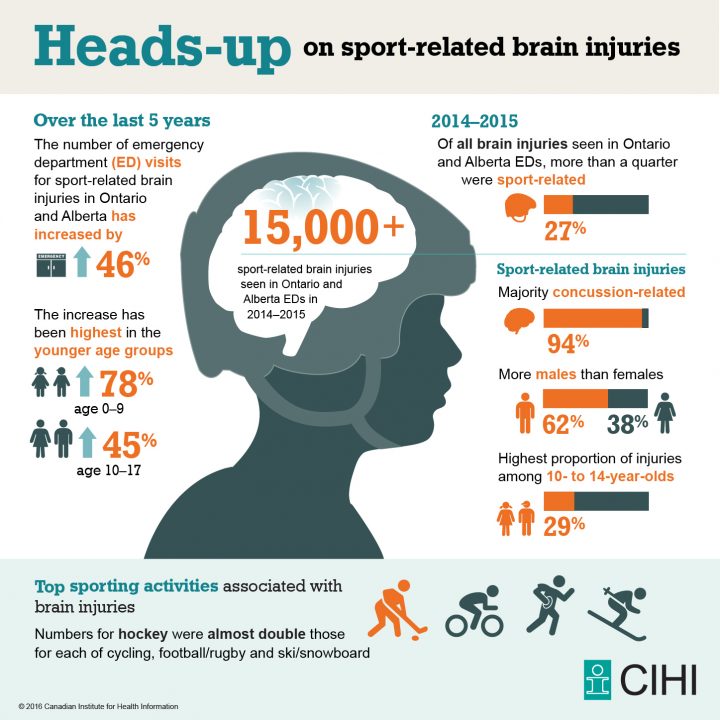It’s a Canadian study that proves winning at all costs can be harmful to your health or at the very least that parents need to ensure their children are taking the proper precautions while being active.

Over the last five years, the number of emergency department (ED) visits for sports-related brain injuries has significantly increased across the country.
READ MORE: ‘Tremendous shift in concussion awareness’ in pro hockey: former NHL coach
Plus, officials with the Canadian Institute for Health Information (CIHI) say in 94 per cent of cases studied last year, the diagnosis was the same – each and every time.
“We looked at the number of visits to the emergency department in Alberta and Ontario for sports-related brain injuries and we find that in the last year – 2014-2015 of over 15,000 of these visits, nine out of 10 of these cases are concussion-related,” said Juliana Wu, manager of trauma registries for CIHI.
READ MORE: Canadian docs pioneer new test to predict concussion recovery time in kids
If there was a silver lining to the study, officials say while ED visits related to this type of injury are on the rise, the number of cases severe enough to warrant a hospital stay has not.
“People may be going to the emergency department for precautionary measures more than anything else,” Wu said.
The study also indicates that ED visits are dramatically increasing among younger age groups:
- 78 per cent increase among children aged 0-9
- 45 per cent increase among youth aged 10-17
“I think this is more reflective of parents being more cognizant of the long-term effects or potential impact of concussions.”
READ MORE: Simple blood test could help detect concussions sooner
For five years, Dr. Changiz Taghibiglou has dedicated his life to concussion research at the University of Saskatchewan.
“If someone has a concussion, it’s not detected, they’re not taken off the field and they get a repeat concussion,” he said.
“We have a condition called ‘second impact injury’ which is a serious condition and sometimes deadly.”
Which is why prevention is key but also being able to identify when someone has one.
“That’s why we need bio-markers, just using a few drops of blood – like a blood sugar test to test increasing proteins in the blood to detect if someone suffered from a concussion or not,” Taghibiglou said.
It’s something he and his team are working on right now as they fine tune the precision of their prototype. Eventually, in three to fours years time the diagnostic kits should be widely available and will be so user-friendly, the blood test could be administered on the sideline of a sports field.




Comments